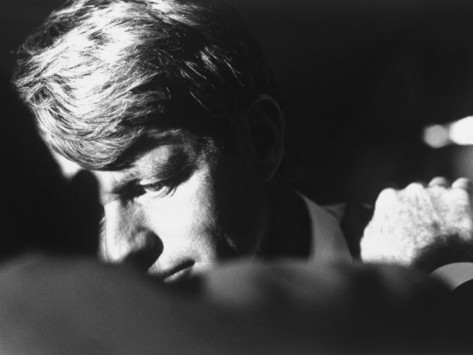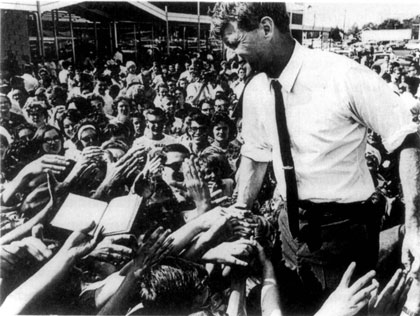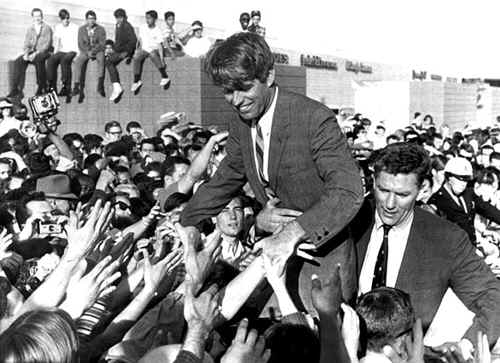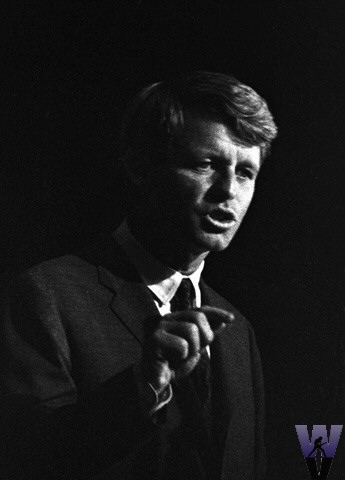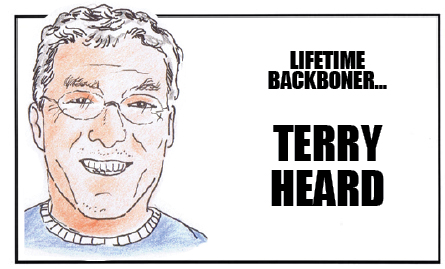Washington, D.C. March 16, 1968
I am today announcing my candidacy for the presidency of the United States.
I do not run for the presidency merely to oppose any man but to propose new policies. I run because I am convinced that this country is on a perilous course and because I have such strong feelings about what must be done, and I feel that I’m obliged to do all that I can.
I run to seek new policies – policies to end the bloodshed in Vietnam and in our cities, policies to close the gaps that now exist between black and white, between rich and poor, between young and old, in this country and around the rest of the world.
I run for the presidency because I want the Democratic Party and the United States of America to stand for hope instead of despair, for reconciliation of men instead of the growing risk of world war.
I run because it is now unmistakably clear that we can change these disastrous, divisive policies only by changing the men who are now making them. For the reality of recent events in Vietnam has been glossed over with illusions.
From “The Last Campaign: 82 Days
that Inspired America”
By Thurston Clarke
While driving to an event on Long Island with Sylvia Wright on March 15, he asked her if she thought he was crazy to run. “My brother thinks I’m crazy,” he said. “He doesn’t like this. He doesn’t go along. But then, we’re two different people. We don’t hear the same music. Everyone’s got to march to his own music.” And hours before declaring his candidacy he told advisers who were still begging him to change his mind, “I’ve got to try it, even if I fail. I’d [kill]…myself inside if I let myself act like a hypocrite.”
As he was reviewing his announcement the next morning he complained to Ted Sorensen that one passage made no sense, adding, “Not that anything we are doing today makes sense anyway.” Sorensen was reminded of what JFK had said after Bobby had jumped off a sailboat into the frigid waters off the coast of Maine: “It either showed a lot of guts or no sense at all, depending on how you looked at it.”
There is a failing of
generosity and
compassion.
There is an
unwillingness to
sacrifice.
Greek Theater, Los Angeles, Calif., March 24, 1968:
For it is long past time to ask: what is this war doing to us? Of course it is costing us money — fully one-forth of our federal budget — but that is the smallest price we pay. The cost is in our young men, the tens of thousands of their lives cut off forever. The cost is in our world position — in neutrals and allies alike, every day more baffled by and estranged from a policy they cannot understand.
March 18, 1968, Landon Lecture at Kansas State University, Manhattan, Kansas:
We cannot continue to deny and postpone the demands of our own people while spending billions in the name of the freedom for others. We have an ally in name only. We support a government without supporters. Without the effort of American arms, that government would not last a day.
The front pages of our newspapers show photographs of American soldiers torturing prisoners.
At Kansas University, March 18, 1968:
“I am also glad to come to the home of another Kansan who wrote, ‘If our colleges and universities do not breed men who riot, who rebel, who attack life with all their youthful vision and vigor then there is something wrong with our colleges. The more riots that come on college campuses, the better [the] world for tomorrow.’”
After a pause, Kennedy identified the author of the quotation, saying, “The man who wrote these words was that notorious seditionist, William Allen White—the late editor of the Emporia Gazette—and one of the giants of American journalism.” White had been a close friend of Landon’s, and an icon to Kansas Republicans. All eyes now went to Landon, waiting for his reaction. If there was a moment when Kennedy’s campaign hung in the balance, this was it.
Our country is in danger: not just from foreign enemies; but above all, from our own misguided policies — and what they can do to the nation that Thomas Jefferson once told us was the last, best, hope of man. There is a contest on, not for the rule of America, but for the heart of America. In these next eight months, we are going to decide what this country will stand for — and what kind of men we are.
On Vietnam then..
but so much like today:
Every time — at every crisis — we have denied that anything was wrong; sent more troops; and issued more confident communiques. Every time, we have been assured that this one last step would bring victory. And every time, the predictions and promises have failed and been forgotten, and the demand has been made again for just one more step up the ladder.
And whatever the costs to us, let us think of the young men we have sent there: not just the killed, but those who have to kill; not just the maimed, but also those who must look upon the results of what they do.
It may be asked, is not such degradation the cost of all wars? Of course it is. That is why war is not an enterprise lightly to be undertaken, nor prolonged one moment past its absolute necessity.
From
Thurston Clark (after visit to poverty-stricken Mississippi):
When Burden’s wife, Amanda, opened the door, he grabbed her by the shoulders and said, “You don’t know what I saw! I have done nothing in my life! Everything I have done was a waste! Everything I have done was worthless!”
Ball State, April 4th:
“You cannot point to others and say, ‘This is their choice; this is not my responsibility,’ For when elected or appointed government officials act…they act in your name. When they conduct a war…they do so for your future and really in the name of the American people.”
From Thurston Clark’s The Last Campaign…
He improvised, for example, on his plea that Americans “learn the harsh facts that lurk behind the mask of official illusion with which we have concealed our true circumstances [in Vietnam], even from ourselves,” telling an audience in San Jose, “We can no longer differ on reality; we can no longer deceive ourselves,” and students in Los Angeles, “I am on the side of those who are not afraid to recognize past error, who refuse to blindly pursue bankrupt policies which will rend us from our friends and drain us of our treasure, in the fruitless pursuit of illusions long since shattered.”
Some students at the University of Nebraska booed when he said, “Our real power lies not in guns, bombs, and napalm, but in exemplary action at home and abroad,” and booed again when he said he favored halting the bombing of North Vietnam. He lost his temper and snapped, “Unless we kill every one of them, including the women and children and their supporters, you are going to have to deal with them.” Vietnam was not World War II, he said, it was a political struggle that posed a moral question: “Do we have the right to destroy all the people in Vietnam to save it?”
To read the PDF version of this article, click here.



